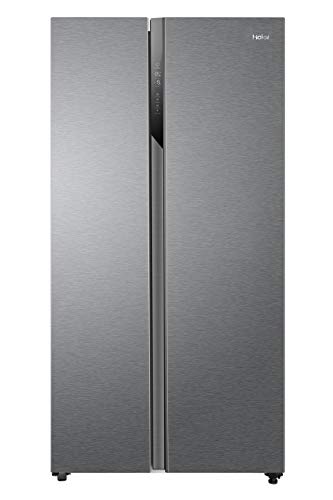The 10 Most Dismal Fridge UK Failures Of All Time Could Have Been Prevented
The Comprehensive Guide to Refrigerators in the UK
Fridges are an essential appliance in every family, serving a vital function in food preservation and security. The UK market uses a varied range of fridge types, sizes, features, and brands. This short article aims to supply an extensive understanding of fridges readily available in the UK, including their features, energy efficiency, and aspects to consider when buying.
Types of Refrigerators Available in the UK
When trying to find a refrigerator, it is essential to understand the different types offered. Each type comes with its own set of functions and functions, dealing with different requirements and choices. The most typical kinds of fridges discovered in the UK include:
1. Leading Freezer Refrigerators
- Description: The traditional style, featuring the freezer compartment on top.
- Pros: More economical, spacious, simple access to fresh food.
- Cons: Limited freezer area, the top may be less hassle-free for bulk items.
2. Bottom Freezer Refrigerators
- Description: Freezer is situated at the bottom, permitting simpler access to fresh food.
- Pros: Greater convenience, much better exposure of fresh products.
- Cons: Usually more expensive, some might have problem with big frozen items.
3. Side-by-Side Refrigerators
- Description: Features 2 vertical compartments, one for the fridge and one for the freezer.
- Pros: Ample storage space, easy to gain access to both frozen and fresh foods.
- Cons: Wider footprint, they might not fit in smaller cooking areas.
4. French Door Refrigerators
- Description: Combines functions of bottom freezers and side-by-sides, with two doors for the fridge on top.
- Pros: Stylish style, large, and frequently consists of sophisticated features.
- Cons: Higher cost point, lines up improperly with smaller cooking area designs.
5. Compact Refrigerators
- Description: Smaller models created for limited spaces.
- Pros: Ideal for studio apartments or workplaces, energy-efficient.
- Cons: Limited storage capacity, may do not have functions.
6. Integrated Refrigerators
- Description: Designed to blend flawlessly with cooking area cabinets.
- Pros: Custom fit, visual appeal, increases home worth.
- Cons: Higher expense, may use less versatility in positioning.
7. Smart Refrigerators
- Description: Equipped with Wi-Fi and clever innovation features.
- Pros: Advanced features like touch screens and internal video cameras.
- Cons: Expensive, more complex to fix.
Refrigerator Type
Availability
Average Price Range
Energy Efficiency
Top Freezer
Moderate
₤ 300 – ₤ 600
Average
Bottom Freezer
High
₤ 400 – ₤ 800
Above Average
Side-by-Side
Easy
₤ 800 – ₤ 1500
Differs
French Door
High
₤ 800 – ₤ 2000
High
Compact
Minimal
₤ 200 – ₤ 500
Average
Integrated
Customized
₤ 1000 – ₤ 2500
High
Smart
Variable
₤ 1200+
High
Secret Features to Consider
- Energy Efficiency: Look for models that are energy-efficient. In the UK, appliances are ranked from A (most efficient) to G (least efficient). An A+ score and above can result in considerable energy cost savings.
- Capability: Choose a fridge with adequate capability for your household. A basic guideline is 100-200 liters per individual.
- Noise Level: Consider models that run quietly, especially if the kitchen area is near living areas.
- Cooling Technology: Features like frost-free innovation are worth the investment, as they lessen maintenance.
- Adjustable Shelves: Having adjustable shelves boosts the flexibility to keep larger products.
- Temperature Control: Check for user friendly temperature controls and zones for different kinds of food.
- Design: Choose the design and color that matches your cooking area aesthetic, whether you choose a modern stainless steel look or a traditional retro surface.
Purchasing Tips
- Determine Your Needs: Consider your cooking practices, household size, and kitchen area.
- Set a Budget: Refrigerators come in numerous price varieties. Establish a budget plan before you begin going shopping.
- Research Study Energy Ratings: Invest in energy-efficient designs to save money on utility costs.
- Check out Reviews: User experiences can provide insights into reliability and performance.
- Compare Brands: Some brand names are known for their toughness while others may provide more innovative features.
Frequently Asked Questions (FAQs)
1. The length of time do refrigerators usually last?
- Refrigerators normally last between 10 to 20 years, depending on the brand name and how well they are kept.
2. Exist any upkeep tips for lengthening the life of a refrigerator?
- Routinely clean the coils, check the door seals, and occasionally thaw if needed to preserve optimum performance.
3. What is the very best size refrigerator for a family of four?
- For a household of 4, a refrigerator with a capability of around 400-600 liters is generally enough.
4. Do I need to stress about energy consumption when buying a refrigerator?
- Yes, energy usage is crucial. Try to find units with high energy effectiveness rankings to lower monthly expenses.
5. Should I pick a fridge with a water and ice dispenser?
- This function can be hassle-free, specifically for households. However, it might require more maintenance than standard designs.
Getting a refrigerator is a substantial decision for any household in the UK. With Frydge , each with its distinct functions and advantages, it is important to assess specific requirements before deciding. By thinking about elements such as energy effectiveness, capability, and design visual appeals, consumers can pick a fridge that aligns well with their way of life, ultimately enhancing their kitchen area experience while safeguarding food quality and freshness.
